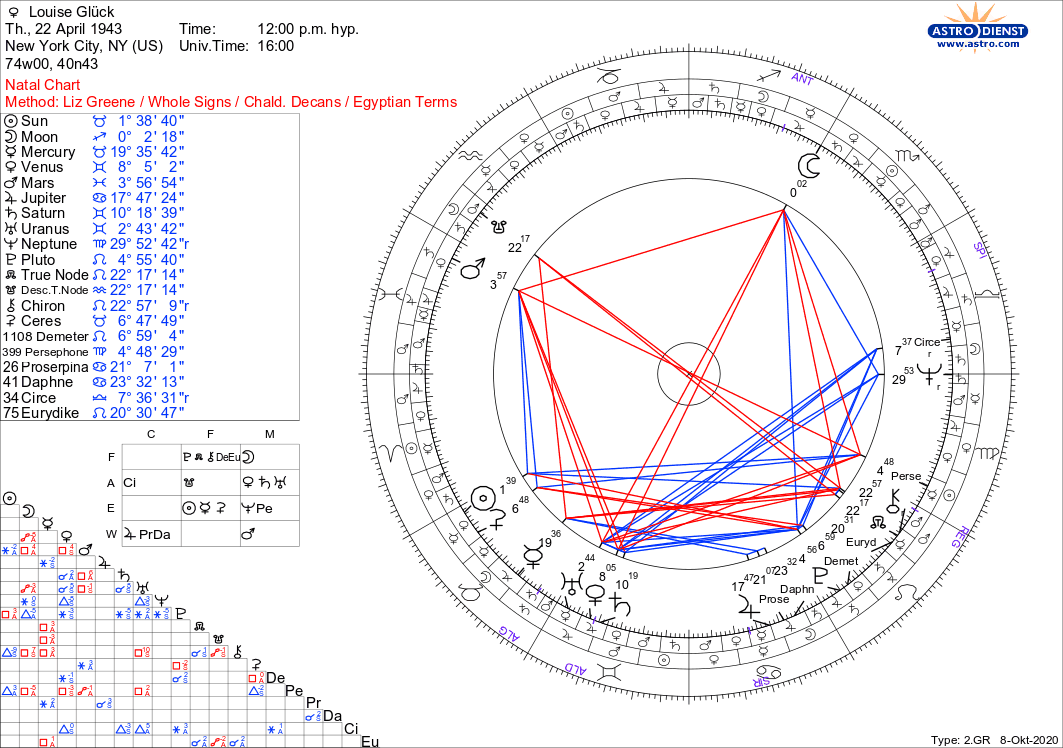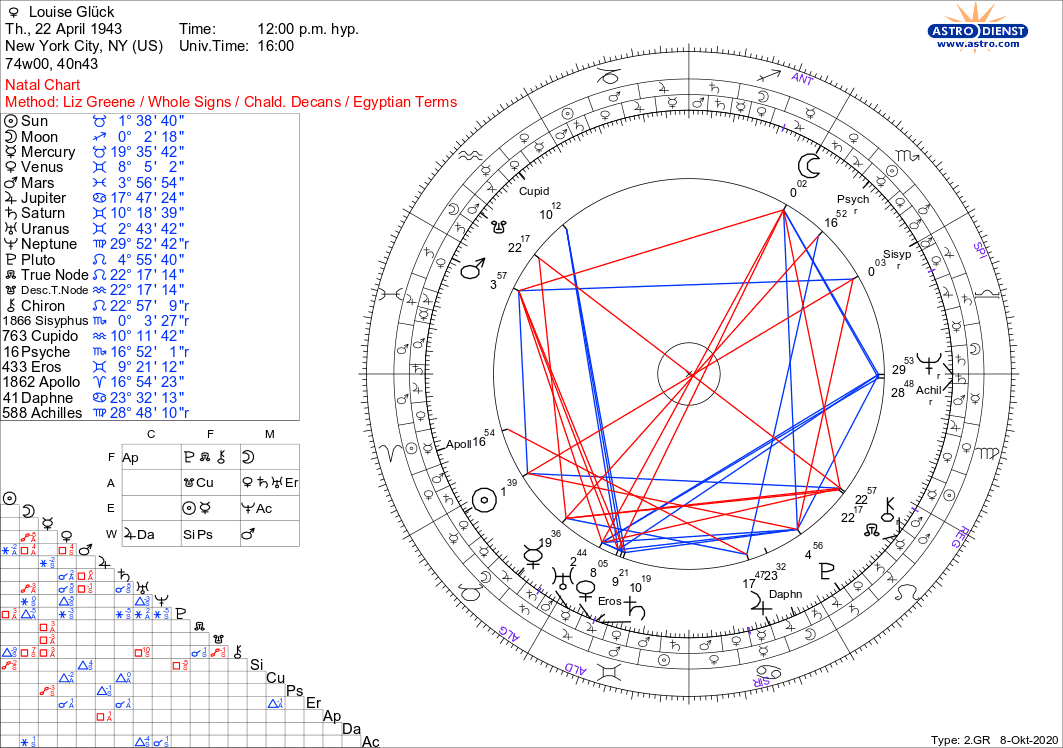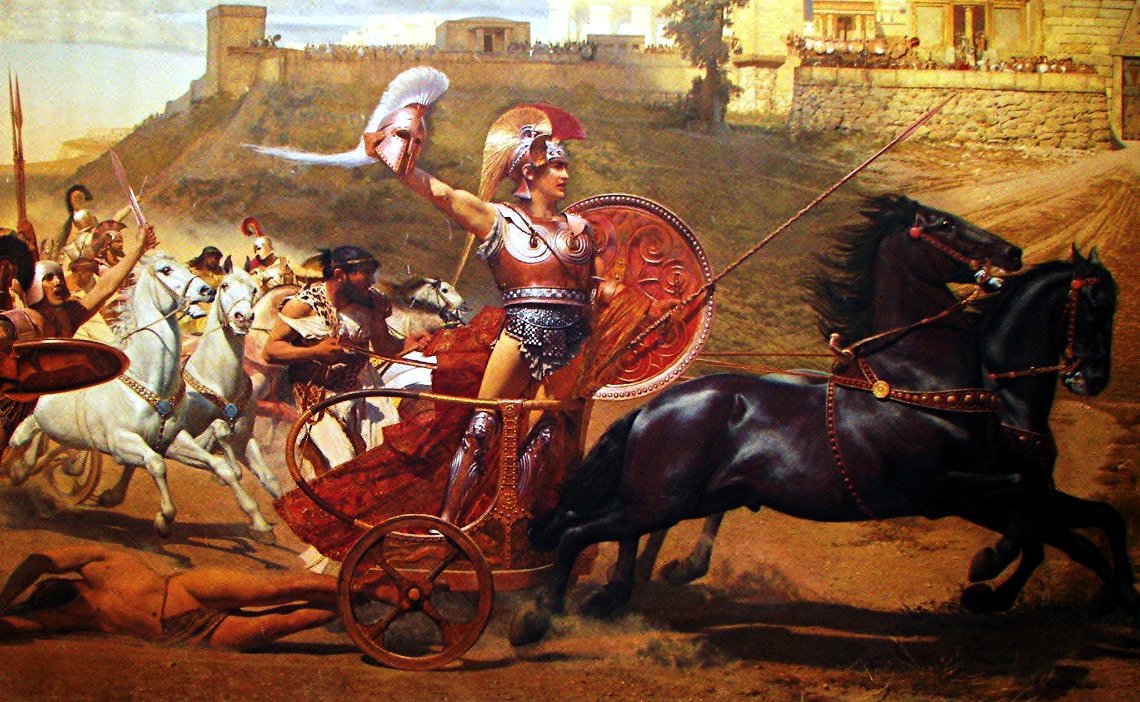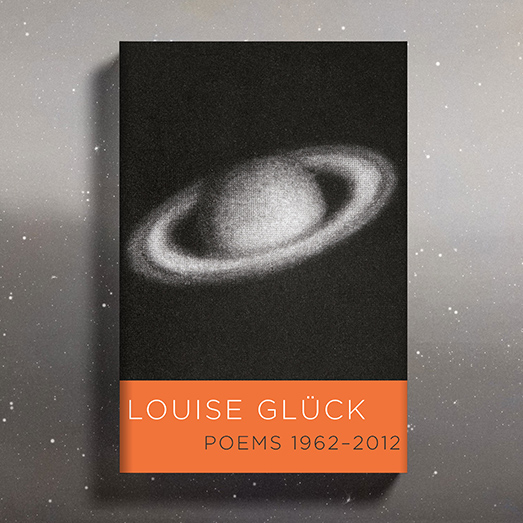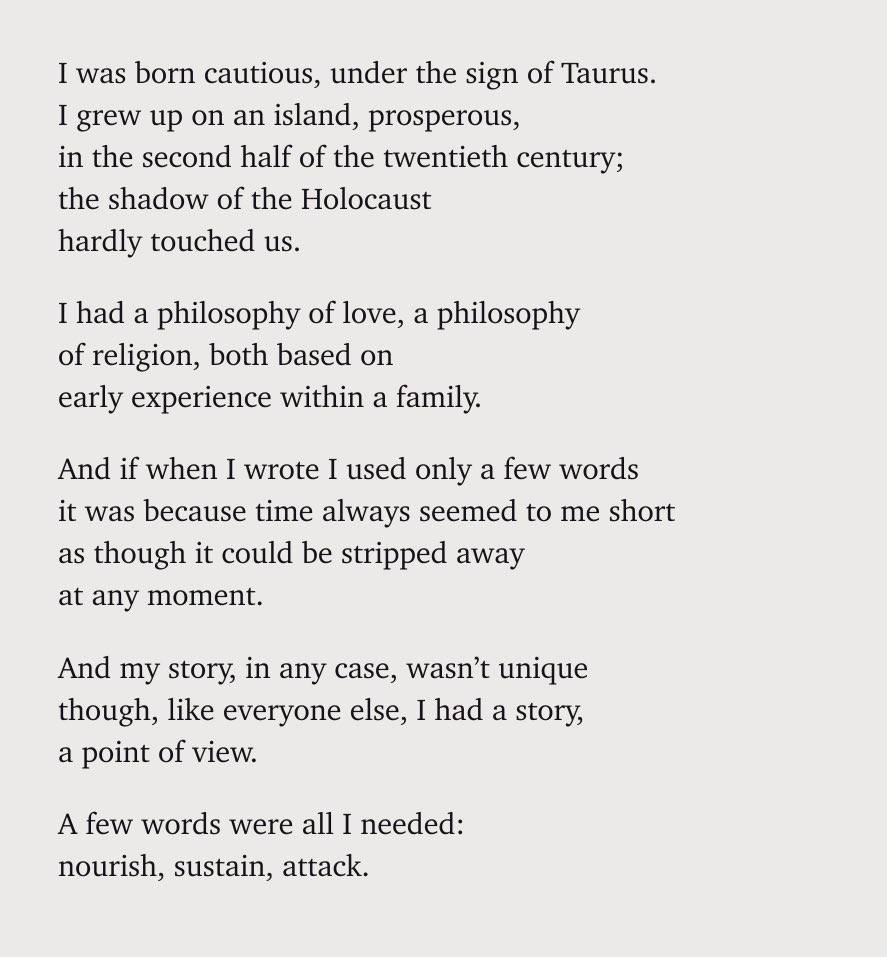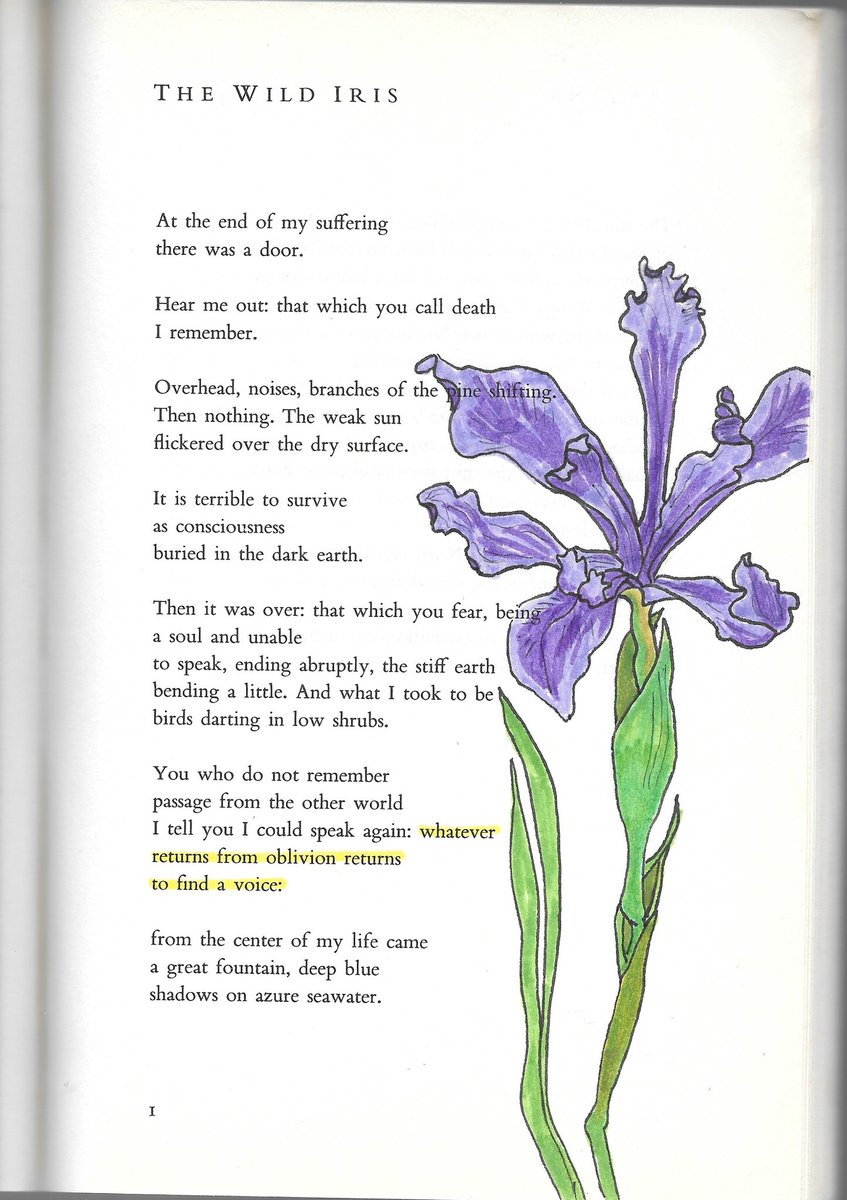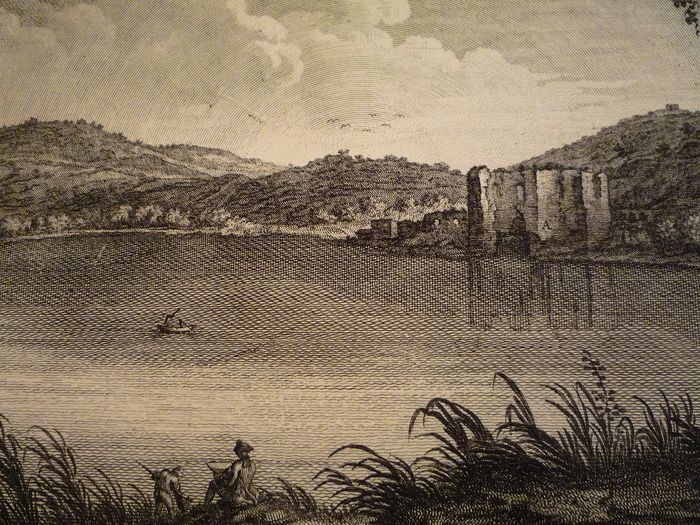Louise Glück (22 April 1943, NYC) is the winner of the 2020 Nobel Prize for Literature.
Her work is austere and chthonic in nature grounded in Greek myth of universality she seeks. "Avernus" is one of the few poems I am familiar with given my research into this archetype.
Her work is austere and chthonic in nature grounded in Greek myth of universality she seeks. "Avernus" is one of the few poems I am familiar with given my research into this archetype.
Let& #39;s look at Daphne, Circe, Persephone, Demeter and Eurydice as examples of Greek mythic personae she has used in her work.
We see their asteroid counterparts are, for the most part, clustered from late tropical Cancer to early Virgo. The outliers being Ceres and Circe.
We see their asteroid counterparts are, for the most part, clustered from late tropical Cancer to early Virgo. The outliers being Ceres and Circe.
"The Triumph of Achilles" refers to Sisyphus, Hyacinth, Cupid and Psyche, Daphne and Apollo and others.
We can read these figures in her poetry and in her chart so to enliven our understanding of how she accesses these mythic figures. Her poetry may aid in refining delineations.
We can read these figures in her poetry and in her chart so to enliven our understanding of how she accesses these mythic figures. Her poetry may aid in refining delineations.
(It is interesting, out of all her work, I chose "The Triumph of Achilles" as an example. Neptune and Achilles are conjunct in both her natal chart (Virgo) and the transit chart (Pisces). They are forming a whole-sign opposition to each other at the Nobel committee announcement.)
Glück& #39;s retrospective collection "Poems 1962-2012" features a grainy, ghostly black and white mezzotint of the planet Saturn by the Latvian-American artist Vija Celmins.
She has a Saturn-Venus conjunction in Gemini co-present with Uranus.
She has a Saturn-Venus conjunction in Gemini co-present with Uranus.
What Jung calls & #39;The Spirit of The Times& #39; reflects how the West (the Nobel Committee) has awarded itself.
Glück& #39;s American heritage is notable as she becomes one of the poets laureate of 2020: emblematic of the depth of isolation and suffering we are collectively experiencing.
Glück& #39;s American heritage is notable as she becomes one of the poets laureate of 2020: emblematic of the depth of isolation and suffering we are collectively experiencing.
Louise Glück& #39;s & #39;Memoir& #39; gestures toward astrology and her Jewish identity within the same stanza.
Creating our own responses to this poem, our own memoirs, where we situate our own astrology and identity, can be a fitting way to feel the texture of her work.
Creating our own responses to this poem, our own memoirs, where we situate our own astrology and identity, can be a fitting way to feel the texture of her work.
Her Taurean expression is famously captured in "The Wild Iris" where Louise Glück embodies flowers, a gardener-poet and a god.
Hoa Nguyen says Glück writes in "the language of flowers and in the voice of flowers" to exemplify Taurus itself. https://www.poetryfoundation.org/harriet/2014/05/stars-poetry-part-i-aries-taurus-gemini">https://www.poetryfoundation.org/harriet/2...
Hoa Nguyen says Glück writes in "the language of flowers and in the voice of flowers" to exemplify Taurus itself. https://www.poetryfoundation.org/harriet/2014/05/stars-poetry-part-i-aries-taurus-gemini">https://www.poetryfoundation.org/harriet/2...
It was when she leaned into her Taurus Sun during 10 weeks in 1991 (when profected from the Sun, Taurus was highlighted at age 48 in 1991!) did she produce her 1992 collection of 54 poems for "The Wild Iris". This led to her being awarded the 1993 Pulitzer Prize in Poetry.

 Read on Twitter
Read on Twitter
